Though Trinidad and Tobago is a wealthy Caribbean country, when it comes to safety, the country has seen better days.
The media outlets are constantly flooded with crime reports which cast a shadow over the country’s prosperity.
The wave of crime is so steep that it’s practically a national emergency. Even global travel advisories urge tourists to postpone visiting until things settle.
In this guide, we’ll cover all the reasons why it’s not the best idea to visit Trinidad and Tobago at present. But if you’re still determined to go, we hope to help you stay safer with some tips and up-to-date information.
Are you planning a last minute trip to Trinidad and Tobago? We’ve put together all the resources you’ll need for a fun & safe travel:
🛌 Best & Safest Places to Stay in Trinidad and Tobago:
👉 Hibiscus Golf Villas – Family rooms, Pets allowed, Swimming Pool
👉 Blue Haven Hotel – Facilities for disabled guests, Room service, Restaurant
👉 Bacolet Beach Club – Spa and wellness centre, Good breakfast, Bar
👉 The BRIX Autograph – Key card access, City view, Non-smoking rooms
⛱️ Fun Activities & Tours in Trinidad and Tobago:
👉 Stand Up Paddle Lessons
👉 Avocat Waterfall Tour & Beach Stop Adventure
👉 Full Island Tour (Including Lunch & Snorkeling)
🚗 Best & Safest Trinidad and Tobago Transportation Services:
👉 Airport Pickup Service – Welcome Pickups
👉 Rent a Car – DiscoverCars
🙏 Stay Safe While Travelling:
👉 Safetywing (for medical insurance)
👉 VisitorsCoverage (for trip insurance)
Is Trinidad and Tobago Safe?

Trinidad and Tobago isn’t considered to be very safe. However, most travel advisories simply urge tourists to practice increased caution rather than eschew going altogether.
The country grapples with economic problems, the possibility of running out of oil and gas, corruption, and race-based politics. This is all accompanied by a big issue—crime.
Trinidad is the bigger island with over a million citizens. Here, anyone can fall victim to crime, particularly tourists, who have been targets for thefts and assaults.
Tobago, on the other hand, is a quieter, smaller island with fewer inhabitants. Crime is lower, however, violent burglaries go down at villas and guesthouses, especially in spots like Buccoo, Mount Irvine, and Charlotteville.
In the past, the most petty crimes occurred during Carnival, the crowning event that draws tens of thousands of tourists every year. But now, crime happens year-round.
- International travel advisories: Level 2, practice increased caution
- Crime rating: Moderate to high, at 70.83
- Most committed crimes: Assaults, petty thefts, and drug-related offenses.
- High-crime areas: Laventille, Beetham, Sea Lots, Cocorite, Carenage, Morvant, the interior of Queen’s Park Savannah, La Brea (Pitch Lake), downtown Port of Spain, Fort George overlook, and all beaches (after dark)
- Public transportation safety: Unsafe; you are exposed to theft and assaults.
- Safety walking alone during the day: Moderate
- Safety walking alone during the night: Low
- Road safety: Some roads are narrow and winding, and major roads carry the threat of carjacking and reckless driving.
- Beach safety: At night, beaches are the most common site of theft and assaults; regarding swimming, dangerous currents may put tourists at risk of drowning
- Shark attacks: Rare
- Common natural disasters: Hurricanes and earthquakes
- Carbon monoxide poisoning: No reported cases, but the threat exists
- Police presence: 6,500 officers; however, their presence doesn’t always guarantee safety
- Medical care quality: Public hospitals and private clinics are spread out, but you may need to be evacuated for serious health issues
Travel Advisory for Trinidad and Tobago
Different international travel advisories share somewhat conflicting information regarding the safety situation of Trinidad and Tobago.
The Australian travel advisory puts the nation in the Level-2 safety category, which urges visitors to “Exercise a high degree of caution,” but does not advise them to postpone travel. The Canadian, NZ, and UK travel advisories follow suit, but they’re quick to highlight the serious risk of crime. So, if you decide to visit, maintain high awareness at all times.
The United States travel advisory assigns Trinidad with the Level-3: “Reconsider Travel” category. It cites high crime levels as to why tourists should postpone their visit, as visitors aren’t spared the trouble.
So the consensus is that you can visit Trinidad and Tobago. However, you need to do so with extreme vigilance.
A Comprehensive Look at Trinidad and Tobago Crime Rates
Trinidad and Tobago is the sixth-highest crime-rated country globally, with a crime index of 70.83.
The country grapples with an increasing crime wave, reaching a number of nearly 10,000 reported crimes annually.
The neighboring countries of Venezuela and Guyana, also struggling with high crime rates, contribute to drug-related activities in the West. In 2023, Trinidad and Tobago saw a total of 310 drug-related incidents.
| Safety Concerns | Crime Rate | Status |
| Overall Crime Level | 80.70 | Very High |
| Increase in Crime (Past 3 Years) | 82.89 | Very High |
| Home Break-Ins and Thefts | 67.14 | High |
| Mugging and Robbery | 71.40 | High |
| Car Theft | 63.80 | High |
| Theft from Vehicles | 68.83 | High |
| Personal Attacks | 65.17 | High |
| Verbal Insults | 58.08 | Moderate |
| Racial, Ethnic, Gender, or Religious-Based Attacks | 34.35 | Low |
| Drug Use and Dealing | 76.21 | High |
| Property Crimes (Vandalism and Theft) | 71.71 | High |
| Violent Crimes (Assault and Armed Robbery) | 81.83 | Very High |
| Corruption and Bribery | 86.35 | Very High |
| Safety Walking Alone in Daylight | 47.94 | Moderate |
| Safety Walking Alone at Nighttime | 17.32 | Very Low |
Source: Numbeo, 2024 data 2024 data based on 16 contributors.
Police Presence in Trinidad and Tobago
The Trinidad and Tobago Police Service is made up of around 6,500 officers. However, their presence doesn’t always guarantee safety.
It’s not a matter of the police doing nothing; rather, the overwhelming and varying nature of crime makes it practically impossible to prevent and process each incident.
Adding to the complexity is the issue of corruption, which further erodes trust in law enforcement. In 2022, Trinidad ranked 76th out of 180 countries for corruption, with over 50 cops facing corruption charges that same year. The UN National Refugee Agency confirms that corruption within the police force is linked to the drug trade.
Public Transportation Safety in Trinidad and Tobago
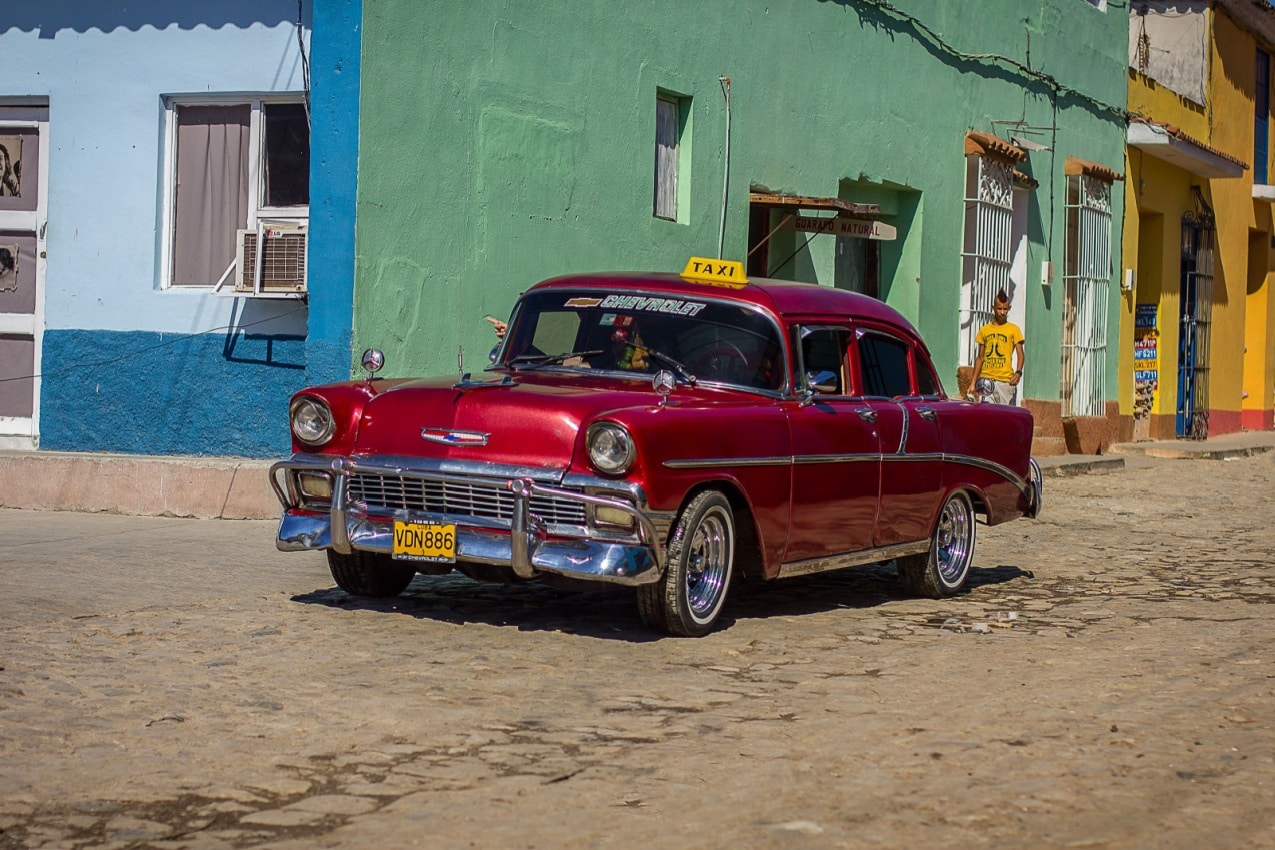
Using public transport in Trinidad and Tobago is risky.
Crime reports tell a grim tale of robberies and assaults targeting bus travelers. The mini busses known as “maxi taxis” stop anywhere on the road to pick up extra passengers, thus further exposing tourists to potential danger.
There have been reports of unlicensed taxi drivers being perpetrators of violence, assaults, and robberies.
Private taxis and those affiliated with major hotels may seem safer, but assaults from private taxi drivers have occurred, so even this option doesn’t guarantee iron-clad safety.
Road Safety in Trinidad and Tobago
The roads in Trinidad and Tobago are unsafe for driving.
The Australian travel advisory reveals that tourists are three times more likely to be harmed in a motor vehicle accident in Trinidad and Tobago than in Australia.
The roads are made of low-quality materials and poorly maintained. Plus, some roads are narrow and winding, pedestrians often walk on the roads, and locals often drive under the influence of alcohol.
Many accidents caused by drunk driving happen on the Beetham-Churchill Roosevelt Highway to and from the airport. The road from Port of Spain to the popular Maracas beach area is also notorious for reckless driving.
Medical Care Quality in Trinidad and Tobago
The quality of medical care in Trinidad and Tobago varies.
There are several major hospitals and smaller health centers and clinics dispersed across the islands. Routine medical issues can be tackled with ease, but if you’re suddenly facing a serious health complication, be prepared for the possibility of evacuation to another location that offers a higher standard of care.
Key public hospitals include:
- Eric Williams Medical Sciences Complex: +1 868 225 4673
- Point Fortin Hospital: +1 868 648 3281
- Port of Spain General Hospital: +1 868 623 2951
- San Fernando General Hospital and San Fernando Teaching Hospital: +1 868 225 4325
- Sangre Grande Hospital: +1 868 668 2273
- Scarborough General Hospital: +1 868 660 4744
Costs at public hospitals range from free for smaller injuries and/or ailments to pricey for complex procedures. Private clinics tend to be more expensive than public hospitals.
Consider travel health insurance to keep your mind at ease, As it will cover medical expenses in Trinidad and Tobago. Double-check which hospitals are covered by your insurance policy.
Notable insurance options include MyGuardianGroup, VisitorsCoverage, Insured Nomads, and SafetyWing.
Is It Safe to Travel Solo in Trinidad and Tobago?
In 2024, Trinidad and Tobago isn’t a safe destination for solo travelers.
Solo travelers are at a higher risk of crime in Trinidad and Tobago.
If you’re set on visiting, travel with a group. Alternatively, postpone visiting until the authorities give the green light for safety.
Perils of Nature: The Risk of Natural Disasters in Trinidad and Tobago
Trinidad and Tobago face the possibility of two natural disasters: hurricanes and earthquakes.
Hurricanes
Hurricanes occur in Trinidad and Tobago about four times a year, typically within the official Atlantic hurricane season, from early June to late November.
Many hurricanes don’t make direct landfall in Trinidad and Tobago, but the aftermath can bring gusts of wind, rain, and occasional coastal flooding. The cities most impacted in Trinidad and Tobago are Scarborough and Petit Valley.
The most intense hurricane to hit Trinidad and Tobago in 2023 was Bret. Hitting a peak wind speed of 59.5 mph (about 96 km/h) on June 22, 2023, at 11:00 PM local time near Scarborough, it measured 57.8 miles (about 93 kilometers) in diameter—earning the classification of a tropical storm hurricane.
Keep tabs on hurricane updates from reliable sources like the National Hurricane Center. If a hurricane is brewing, local authorities will lay out safety measures and point you to the nearest shelters.
Earthquakes
Trinidad and Tobago experienced an earthquake registering a 5.2 magnitude on February 3rd, 2024. Luckily, the quake was moderate, with no damage and no victims.
Looking back, the most powerful quake near Trinidad and Tobago was a 6.7-magnitude tremor in 1997, which had a depth of 5.0 kilometers. The damage was estimated at $18-25 million.
Earthquakes hit with little to no warning, so you can’t track their activity like with hurricanes. The only solution is to act promptly if one does occur.
In the rare event of a quake:
- Drop to the ground
- Take cover under something sturdy
- Hold on tight until the shaking stops
If you’re outdoors when it hits:
- Find a clear spot away from buildings and trees
- Stick to the drop, cover, and hold-on drill
Now, if you’re by the coast and notice the water pulling back:
- Don’t wait around, move away
- Head to higher ground
For real-time updates on earthquake activity, visit the Trinidad and Tobago Weather Center.
Beware the Silent Threat: Carbon Monoxide Poisoning in Trinidad and Tobago
Trinidad and Tobago hasn’t suffered any carbon monoxide poisoning incidents. This silent threat sneaks into rooms through poorly maintained or improperly vented appliances.
Nevertheless, this danger is not unfamiliar to the Caribbean, as a tragic incident in 2022 in the Bahamas saw three Americans harmed at a Sandals resort on Great Exuma Island.
There are no national laws mandating carbon monoxide detectors, so your hotel in Trinidad and Tobago may lack one. Hence, we recommend carrying a portable CO detector.
If you feel symptoms like headaches, vomiting, or feeling dizzy, you may suffer from CO poisoning. Seek medical attention promptly. Prolonged exposure to CO can have severe health consequences.
Serenity by the Shore: The Safety of Trinidad and Tobago Beaches
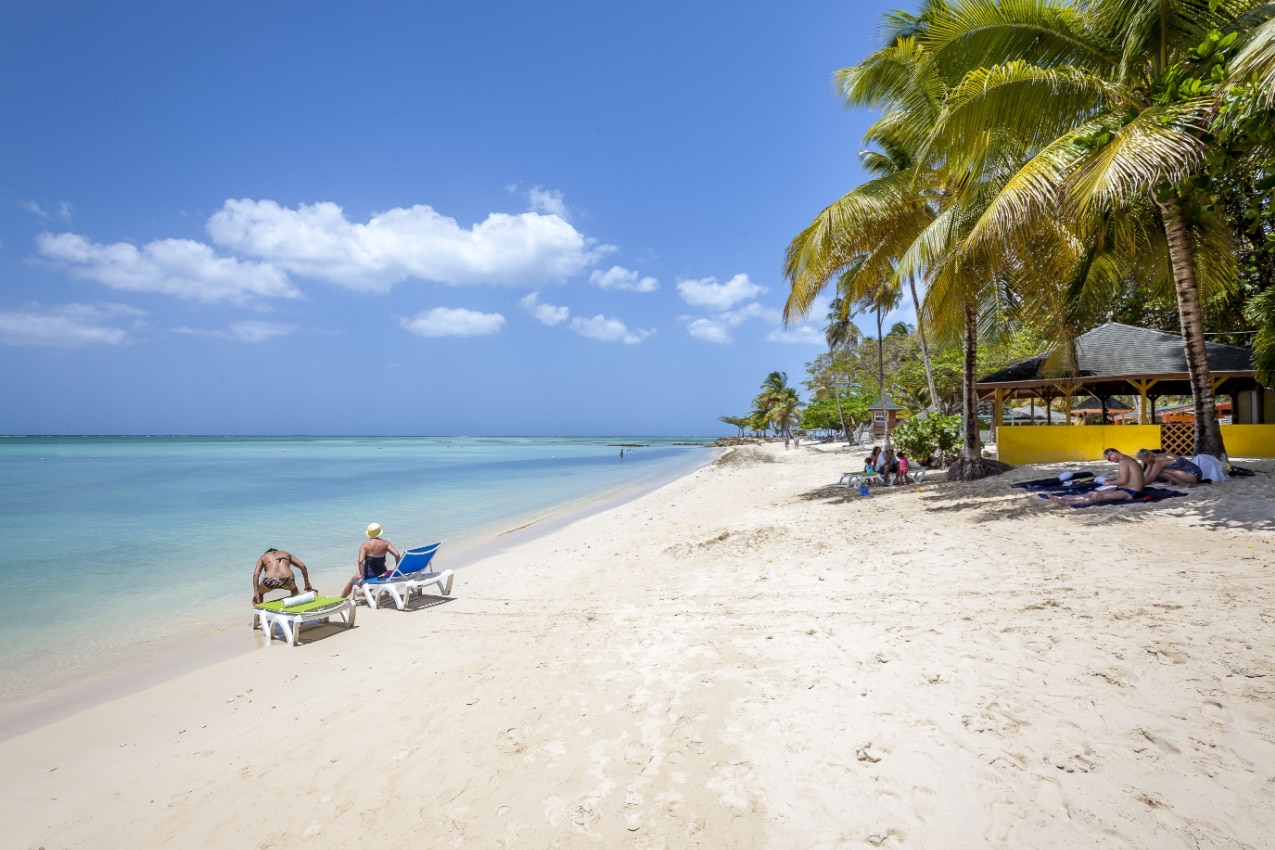
Beaches in Trinidad and Tobago are not safe—these public spots are frequent targets for crime, especially after dark when the risk escalates to more violent assaults.
Beyond human threats, treacherous currents have harmed many in Trinidad and Tobago. While shark attacks are rare, swimming alone might invite unexpected encounters.
If you’re set on beach time, stick to where the crowd is. Sharks avoid crowded beaches and that’s where lifeguards keep watch.
The beaches with lifeguards on duty are Mayaro, Maracas, Manzanilla, Queen’s Beach Salybia, Tyrico, Las Cuevas, Los Iros, Vessigny, and Quinam.
Trinidad and Tobago also uses a colored flag system at beaches that you can check for safe swimming:
Red Flag: No Swimming. High waves and strong currents.
Yellow Flag: Swim carefully. Waves or currents might pose a challenge.
Green Flag: Safe to swim. The ocean is calm.
Purple Flag: Caution! Potentially harmful marine creatures may be around.
Lifeguards in Trinidad in Tobago usually hold the fort from 10 a.m. to 5 p.m. every day, so it’s wise not to overstay. If venturing to an unpatrolled beach, check with the locals for insights on water conditions.
Trinidad and Tobago Weather Patterns: What to Expect
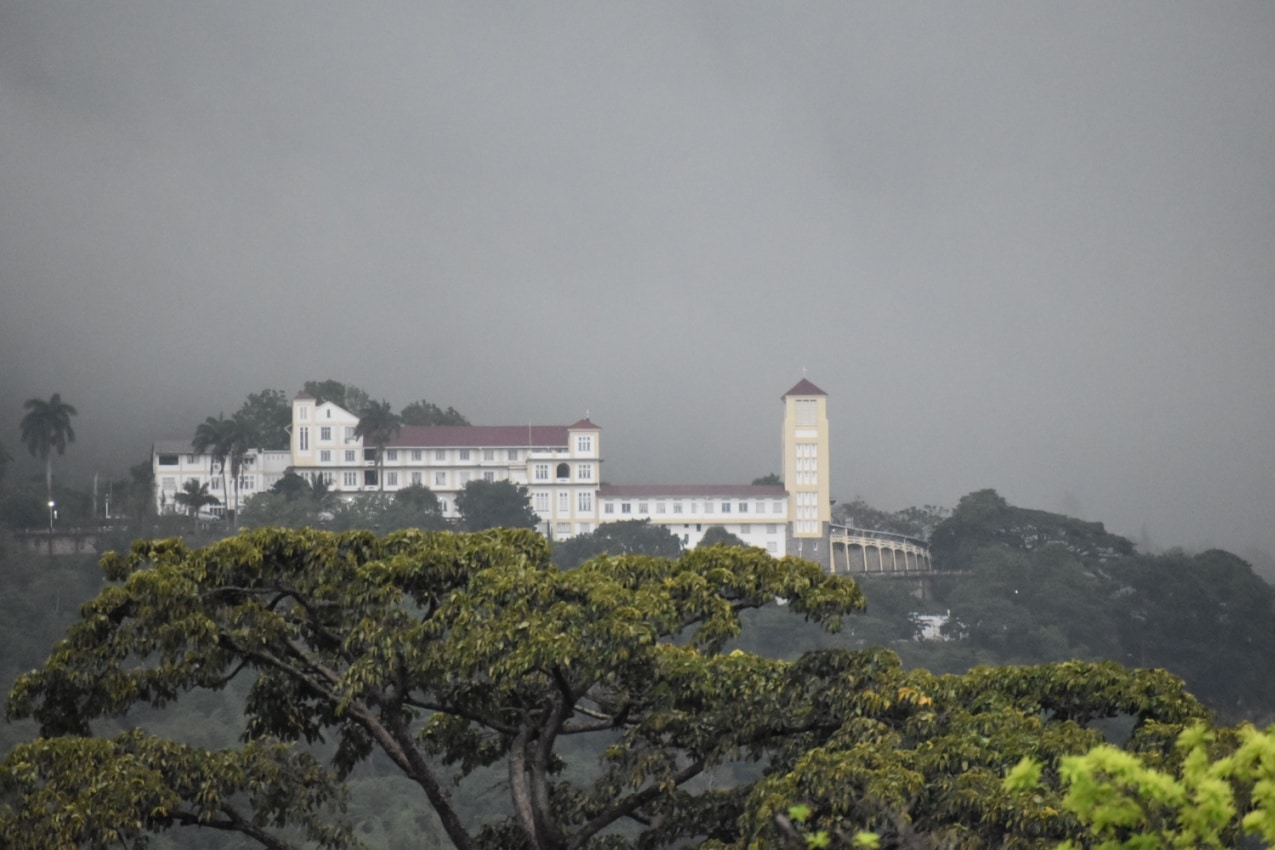
Trinidad and Tobago have a tropical climate.
Temperature variations are minimal, ranging from 72°F to 90°F (about 22.2°C to 32.2°C), rarely falling below 69°F (about 20.6°C) or exceeding 93°F (about 33.9°C).
The rainy season spans mid-May to the end of December, with a higher than 26% chance of a given day being rainy. July has the most rainy days, averaging 13.7, while November sees the highest rainfall, reaching 4.8 inches (about 12.2 cm).
The hurricane season coincides with the wet season, starting in June and ending in November, with the highest likelihood of hurricanes in August, September, and October.
The dry season runs from January to mid-May. March has the fewest wet days (2.1 days), and it is also the driest month, with an average rainfall of 0.5 inches (about 1.3 cm).
The winds pick up from December to mid-July, with April as the gustiest with an average wind speed of 16.5 mph (about 26.6 km/h). September, on the flip side, has the least winds with an average hourly wind speed of 11.5 mph (about 18.5 km/h).
Water temperatures are warm year-round. The water is warmest from August to October, with September boasting the warmest water at around 84°F (about 28.9°C). February has the coolest water with an average water temperature of 80°F (about 26.7°C).
Monthly Average Temperatures in Trinidad and Tobago
| Month | Fahrenheit (°F) | Celsius (°C) |
| January | 78 | 25.5 |
| February | 78 | 25.5 |
| March | 79 | 26.1 |
| April | 81 | 27.2 |
| May | 82 | 27.7 |
| June | 81 | 27.2 |
| July | 81 | 27.2 |
| August | 81 | 27.2 |
| September | 81 | 27.2 |
| October | 81 | 27.2 |
| November | 80 | 26.6 |
| December | 79 | 26.1 |
Source: WeatherSpark, 2024 data
When Is the Best Time to Visit Trinidad and Tobago?
Given the current safety situation, there isn’t an ideal time to visit Trinidad and Tobago.
However, if you still wish to proceed with your visit, the best and safest window would be during the dry months, from January to April.
We’ve chosen this season as it coincides with the islands’ liveliest atmosphere, drawing a larger crowd of tourists and thereby reducing the chances of encountering potential dangers. Safety often lies in numbers. Plus, this period has a more forgiving climate—the sun shines, rain is rare, and nights are pleasant.
The low season may bring lower prices for hotels and accommodation, but we don’t recommend visiting during quieter times, as this could potentially expose you to a higher risk of becoming a target for crime.
How to Stay Safe in Trinidad and Tobago
- Enrollment in STEP Program: Join the Smart Traveler Enrollment Program (STEP) for emergency alerts and easier location tracking.
- Contingency Planning: Review the U.S. Traveler’s Checklist for emergency situations.
- Stay Informed: Monitor local media for breaking events; visit Trinidad Guardian, Loop, and Trinidad Express for updates.
- Daytime Caution Areas: Exercise caution in areas like Laventille, Beetham, Sea Lots, Cocorite, Carenage, Morvant, Queen’s Park Savannah, La Brea, downtown Port of Spain, Fort George Overlook, and all beaches during the day.
- Nighttime Safety Measures: Avoid walking or driving at night; opt for food delivery services like Uber Eats if hungry.
- Drug Possession Laws: Trinidad and Tobago allows possession of up to 30g of cannabis or 5g of cannabis resin; public smoking or driving while under the influence is illegal.
- LGBT+ Considerations: Homosexuality has historically been illegal. The High Court of Justice struck it down, but the State has appealed. There are other laws on the books still not friendly to same-sex relations, including restrictions on the entry of LGBT+ individuals.
- Scam Awareness: Beware of internet romance and financial scams; never share personal or financial information with unknown parties.
- Hotel Security: Be cautious in areas like Mt. Irvine, Buccoo Bay, and Bacolet in Tobago; ensure rental properties have 24-hour security.
- Card Safety: Pay attention when others handle your cards; use ATMs in well-lit areas and avoid irregular card readers.
- Seasonal Crime Peaks: Crimes of opportunity increase during Carnival, Christmas holidays, and Tobago Jazz Experience.
- Non-Resistance to Attacks: If attacked, do not resist; criminals are often armed, and resistance can lead to being harmed.
- Immediate Action for Violent Crime Victims: Seek urgent medical help, especially in cases of violent assaults.
Emergency Numbers
- Police: 999
- Fire: 990
- Ambulance: 990 or 811
- Coast Guard: 634-4440
- Abduction: 623-6793
- Children’s Authority: 996 or 800-2014
Stay Safe, Caribbean Explorers!
Trinidad and Tobago, once a fascinating nation blessed with oil and gas riches and an impressive GDP per capita, now grapples with very serious safety challenges.
Out of the two, Tobago is definitely the safer option for a vacation. However, even to get there, you need to clear several crime points. First, the airport—a hotspot for opportunistic criminals eyeing jet-lagged visitors. Then, the highway—where criminals stop vehicles and snatch valuables, in potentially violent encounters. After that, you need to get through the crime-concentrated Trinidad before finally reaching Tobago—where you still need to keep your guard up, even in your hotel room.
Our verdict is: leave this country for safer times.
If your travel aspirations lean toward the Caribbean, consider alternatives that are not only stunning but also notably safer—such as the Cayman Islands[2] , Grenada[3] , Bermuda[4] , and Puerto Rico[5] .
Safe travels!
Link to: Bahamas Travel Safety 2023: How Safe is the Bahamas for Travel?
Link to: Cayman Islands Travel Safety Guide for 2024
Link to: Grenada Travel Safety Guide for 2024
Link to: Bermuda Travel Safety Guide for 2024
Link to: Puerto Rico Travel Safety Guide for 2024
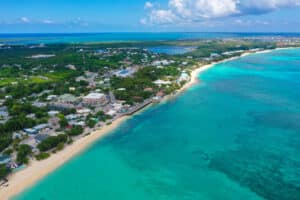
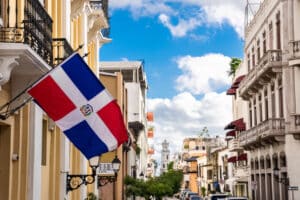
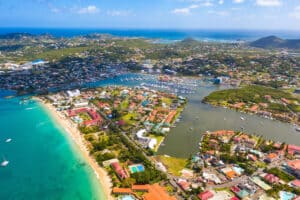
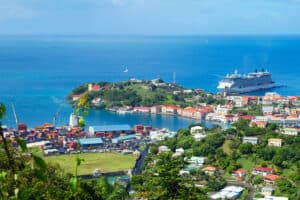
Good to know
I am so glad that I received this particular email today because I family and I had a family reunion to attend to in August, and because of the various location we all felt a way. So we decided not to go any more until next. Hoping that things will die down with the crime. I am a Trinidad and Tobago Citizen and I usually travel every year, but due to the pandemic and crime I took a break for a few year and have no regrets. It just I had to use wisdom and wait for the right time to start back traveling. So this message I received asking all tourist to hold back and rethink their travel plan, and not come to Trinidad and Tobago at this time was actually a Godsend. God bless the sender of this email!!
Sincerely Yours,
Dawn Cruickshank
I am from Trinidad. We do NOT have laws against homosexuality of prejudice against them. We are OUT of the hurricane belt, being too far south. I have never experienced a hurricane in Trinidad after 65 years!
Hi Ruffina, thank you for reading and your feedback. I just made an edit to better clarify the same-sex and LGBTQ+ considerations. There are, indeed, a handful laws on the books that are not sympathetic to this community. The recent 2018 High Court of Justice decision in favor of same-sex individuals was an overturning of just one of those laws. The ruling has also been appealed by the State with a final ruling still pending.
Regarding hurricanes, it’s great that you seem to not have been affected. There are multiple hurricanes that have affected Trinidad and Tobago over the years. Specifically, Ivan (2004) and Tomas (2010). And, here are the 3 most recent significant damage & fatal tropical storms: Tropical Storms Karen (2019), Bret (2017), and Helene (2012).
Hi, my name is Courtney D. I am an expat of Trinidad and Tobago since 1983. I have not been to Trinidad for the past 5 years. However, I am very disappointed to read the review. Unftunately, much of what was said appears to be correct. There’s no question that crime increased since commissioner Gary Griffith left office. He was apparently been ousted. Prime Minister Keith Rowley, I am very disappointed that my home has fallen apart and continues to deteriorate. Congratulations, we now in the top ten dangerous countries to visit. I had hoped to bring my kids, my grandkids, my wife and my new family to visit Trinidad (my home), however, I am scared for their safety.
Carnival-the greatest show on earth- was a disaster. (More ass than mass). No kids allowed!
The last I heard is that Trinidad needs investors to boost its economy. The local are holding their money which causes the Economy to be sluggish. Economic Development, Job opportunities, medical and affordable housing opportunities are declining at a rapid rate. Foreign investors are discouraged because of crime. Unless there are other sources of foreign revenue locals are struggling to survive. The investment strategies to boost the economy are antiquated and needs to be revised.
Please let’s change this before it’s too late!!
In a few years Trinidad will be another Haiti…
I am here to help
CND
Thank you for reading and providing your feedback, Courtney, we appreciate your insights.
I do visit Trinidad quite frequently, because most of my family still resides there. Yes, with the type of crime and nothing seems to be done about it is beyond me. I myself was a victim of theft . My rental car was smashed at the passanger side window at a waterfall close to Toco, police reluctantly took fingerprints, however that’s where it stopped. No follow up on reported crimes.
We need solutions.. BRING BACK GARY, he was exactly what the country needed..
Hi Wendy, thank you for reading and we appreciate you sharing your experiences.
I’m a Trini American just wanna comment about the hurricane season in Trinidad and Tobago! Since Trinidad lies 10 to 11 North of the Equator, Trinidad is not in direct part of the hurricane belt! Although Tobago was hit by hurricane Flora in 1960s.